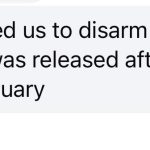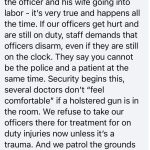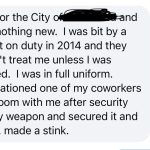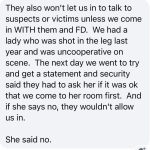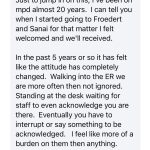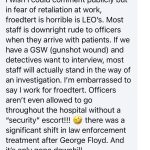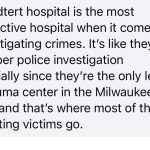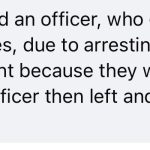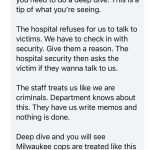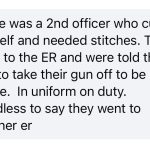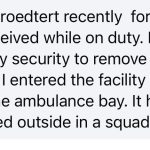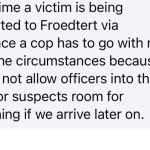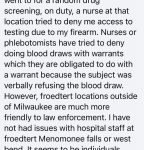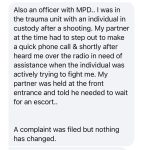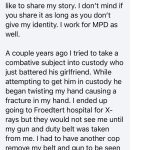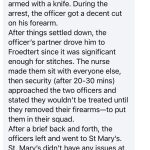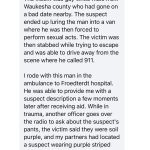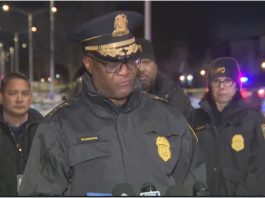The president of Froedtert Hospital’s south region apologized Wednesday to a Milwaukee police officer and the law enforcement community, admitting that the officer was “recently turned away for seeking care while dressed in uniform and carrying a department-issued firearm.”
“To this officer involved and our law enforcement community, we apologize for this incident,” Bryce Gartland MD wrote in the letter obtained by WRN. “In addition to protecting the interests of our community, you also protect our patients and the thousands of team members who work alongside you to provide care for our communities. We are grateful for your everyday acts of bravery and selflessness.”
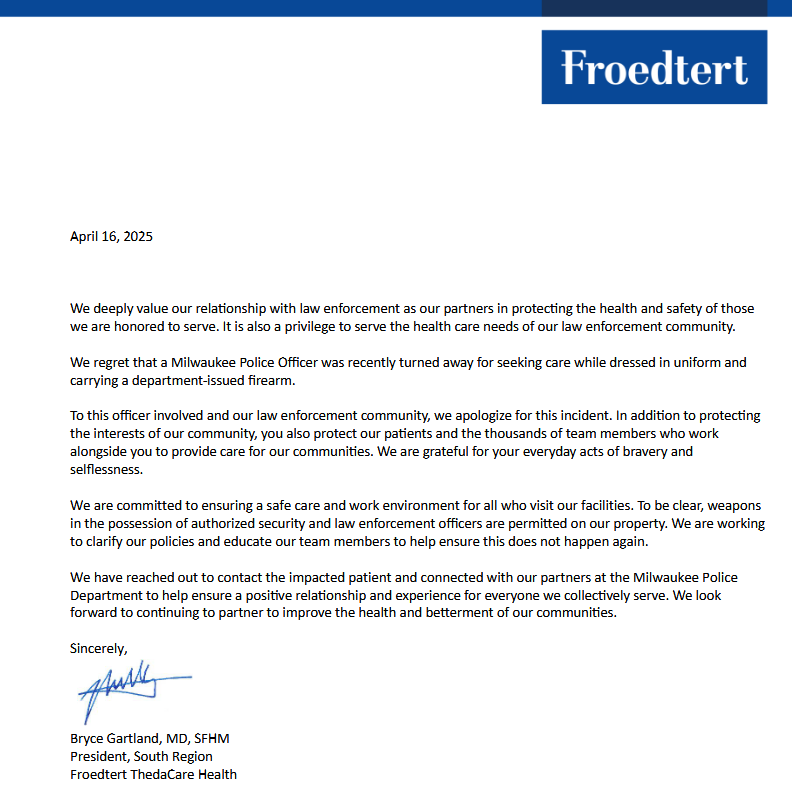
Gartland’s letter came after four lawmakers (Jim Piwowarczyk, Julian Bradley, Van Wanggaard, and Bob Donovan) took the lead in demanding action from Froedtert after Wisconsin Right Now reported that the ill on-duty officer was denied treatment at a Froedtert FastCare clinic because he had a gun. MPD confirmed the account, which we received through a tip, and the Milwaukee Police Association’s president said he was appalled. Many other legislators also signed the letter to Froedtert. Piwowarczyk (a contributor to Wisconsin Right Now) and Wanggaard are former police officers.

“This latest incident appears to be part of a pattern of behavior on the part of Froedtert,” noted Sen. Bradley. “It cannot be allowed to continue. They need to reverse any policies that discriminate against our police.”
“I am outraged that any hospital in Wisconsin would treat our law enforcement so unprofessionally and with so little respect,” added Rep. Piwowarczyk. “It is simply inexcusable. Perhaps it’s time to question their DEI policies and the public funding they receive.”
Gartland also wrote, “To be clear, weapons in the possession of authorized security and law enforcement officers are permitted on our property. We are working to clarify our policies and educate our team members to help ensure this does not happen again.”
However, in the wake of the story, we were contacted by multiple Milwaukee and suburban police officers who reported problems at Froedtert, including a pattern of officers who say they were asked to remove their firearms to receive medical treatment at Froedtert, even when on duty. They said they have experienced:
- Restricted access to victims and suspects in violent crime investigations.
- Requiring officers to wait for a security guard escort, including when there is an exigent circumstance (including an officer whose partner was being attacked).
- Requiring on-duty uniformed officers to divest themselves of their firearms when receiving medical treatment.
- Other incidents where officers were not given immediate treatment because they had guns.
- Questions about whether the hospital honors all search warrants.
- An alleged culture of disrespect toward law enforcement officers just trying to do their jobs.
Here is a photo gallery of those accounts. We have the officers’ names but are withholding them because they fear retaliation.
One source told us that Froedtert and MPD agreed to a workflow chart in 2024 after “repeated incidents of being denied access to injured parties at Froedtert who were either victims or possible suspects of crime, but who weren’t under detention.”
“What’s happening are nurses or security are flat out telling us the patients don’t want to speak with us, which we are unable to verify. We don’t know if this is even they are actually asking the patient or just declaring this on their own,” this law enforcement source told us.
“We are supposed to be allowed to ask the patient directly ourselves without the influence of hospital staff. Either way it violates the agreement made between the agencies, and pretty much makes criminal investigations grind to a halt,” the source continued. ‘
“Many crimes require victim cooperation, and sometimes prolonged rapport building and softening conversations are needed with potential victims for them to agree to prosecute. The offender in many crimes can’t be prosecuted without victim cooperation, meaning no statement from a victim, could lead to a violent offender getting off the hook for a serious crime they committed. So not adhering to this policy by Froedtert in my opinion endangers the public.”
The workflow chart, which we have reviewed, says that “law enforcement will enter the room with the security staff.” It also asks, “Does the patient agree to speak with LE?” A patient’s nurse can also deny the LE visit based on patient condition.
Bradley (of New Berlin), Wanggaard (of Racine), Piwowarczyk (of Hubertus) and Donovan (of Greenfield) issued the “urgent call for action today to Froedtert Hospital leadership following disturbing reports that an on-duty police officer was denied medical care at a Froedtert facility simply because he was carrying his department-issued firearm,” the legislators’ press release says.
Their letter to Froedtert, which was also signed by multiple other legislators, “also points to broader concerns that Froedtert policies may be limiting officers’ ability to interact with victims, suspects, and witnesses within their facilities—effectively restricting law enforcement from doing their jobs and sending a chilling message to officers statewide.”
The legislators condemned the incident as “indefensible” and “dangerous,” warning that it undermines public safety and “reflects a troubling pattern of hostility toward law enforcement.”
“The presence of police officers makes places safer not more dangerous,” said Sen. Wanggaard. “Froedtert’s alleged treatment of armed police officers legitimizes the false narrative and just-plain-wrong anti-police rhetoric that police are reckless vigilantes looking to hurt people.”
“I’m thoroughly disgusted at the irresponsible, anti-cop sentiment that has infiltrated this hospital for far too long. The leaders need to be called on the carpet and taxpayer funds should be withheld if this continues.”
The legislators called on Froedtert to:
- Publicly apologize to the officer involved;
- Reverse any policy that led to denial of care based on the officer’s uniform or equipment;
- Clarify policies that appear to restrict officers’ presence or duties on-site; and
- Implement guidelines that affirm support for law enforcement in healthcare settings.
The legislators have requested a response from Froedtert.
Wisconsin state law bans the refusal or delay of emergency medical treatment, although it’s not clear whether it applies to a FastCare clinic.
“The officer was on duty. After discussions with Fastcare, Milwaukee Police Department is confident this type of situation will not repeat itself,” MPD’s spokesperson told us.
The legislators released Gartner’s letter. Froedtert’s public relations office never responded to Wisconsin Right Now’s request for comment.


